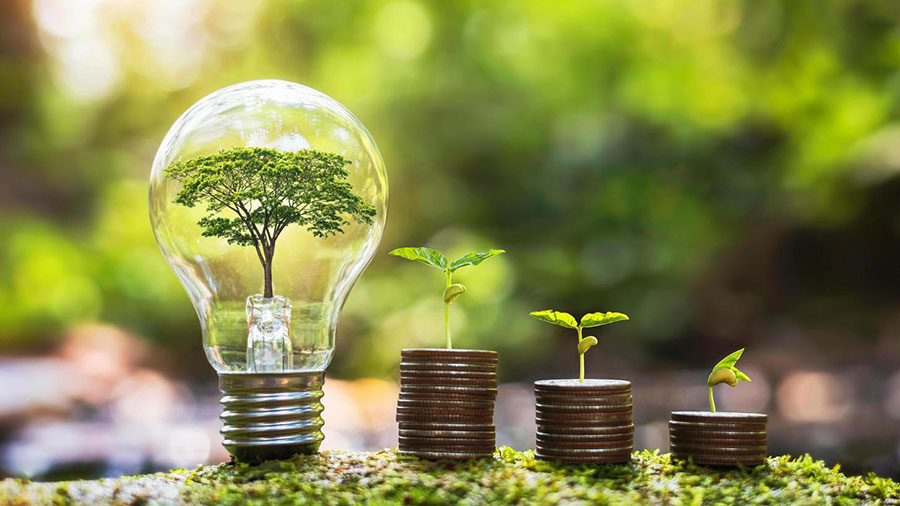
The concept of sustainability has become a critical consideration in nearly every industry, with the real estate sector experiencing a significant transformation in how properties are financed. Green financing, especially in the context of commercial real estate, offers a pathway not only towards environmental stewardship but also towards potentially lucrative financial strategies. This blog explores the growing trend of sustainable and environmentally friendly financing options available for commercial property projects.
Understanding Green Financing
Green financing refers to any structured financial activity — a loan, investment, or other financing mechanism — created to ensure a positive environmental impact alongside a financial return. In the realm of commercial real estate, this translates to funding the acquisition, development, and operation of properties with a reduced carbon footprint.
Why Green Financing?
The shift towards green financing is driven by several factors:
- Regulatory Compliance: Increasingly stringent regulations on environmental sustainability are compelling businesses to adopt greener practices. Financing that supports these practices can ease the compliance burden.
- Corporate Responsibility: There’s a growing recognition that sustainable practices in real estate development and management are integral to corporate social responsibility.
- Investor Demand: Investors are increasingly directing funds towards assets that demonstrate environmental, social, and governance (ESG) criteria. Properties with better sustainability profiles tend to attract more investment.
- Economic Benefits: Green buildings often result in lower operational costs through energy efficiency and can attract higher rental rates and property values.
How Does Green Financing Work?
Green financing instruments in commercial real estate can include green bonds, green loans, and sustainability-linked loans, among others. Here’s how they typically work:
- Green Bonds: These are fixed-income instruments specifically earmarked for raising money for climate and environmental projects. The proceeds are typically invested in sustainable infrastructure, energy efficiency upgrades, and other eco-friendly projects.
- Green Loans: Like green bonds, these are meant for financing or refinancing projects with clear environmental benefits. The difference lies in the flexibility of usage and typically less stringent reporting requirements compared to bonds.
- Sustainability-Linked Loans: These loans are increasingly popular, where the financial terms can improve if the borrower meets certain predetermined sustainability performance targets.
Examples of Green Financing in Action
Several high-profile cases demonstrate the effectiveness and benefits of green financing in commercial real estate. For instance, a notable office building in New York City recently secured a significant green loan to implement energy-efficient systems and sustainable materials in its construction. Another example is a commercial developer in California who issued green bonds to refurbish existing properties with solar panels and energy-efficient HVAC systems.
Challenges and Considerations
While green financing is promising, it’s not without challenges. These may include:
- Higher Upfront Costs: Although the long-term benefits are clear, the initial investment for sustainable technologies and designs can be higher than traditional methods.
- Complex Certification Processes: Obtaining certifications like LEED or BREEAM can be complex and time-consuming.
- Market and Regulatory Risks: Changes in regulatory frameworks and market dynamics can affect the viability and benefits of green financing projects.
The Future of Green Financing in Commercial Real Estate
As awareness and commitment towards environmental sustainability grow, the future for green financing in commercial real estate looks promising. Innovations in financial products and collaboration across governments, investors, and developers will likely expand. Moreover, as technology advances, the cost of implementing sustainable practices is expected to decrease, making green financing an increasingly attractive option.
Green financing not only supports environmental goals but also offers a compelling business case, making it a win-win scenario for developers, investors, and the planet alike. As the market evolves, staying informed and adaptable will be key to capitalizing on the opportunities presented by green financing in commercial real estate.
_____________________________________
EB Mortgage is a locally owned mortgage company with experts in new home purchase, refinancing, and commercial loans. Our wholesale rates can’t be beaten. We offer more products, more options, and more solutions. Our “3C” Process is simple: complete our pre-approval request, consider options based on your requirements, and choose the offer that suits your needs best. Call us or e-mail us today!
Written by the digital marketing team at Creative Programs & Systems: www.cpsmi.com